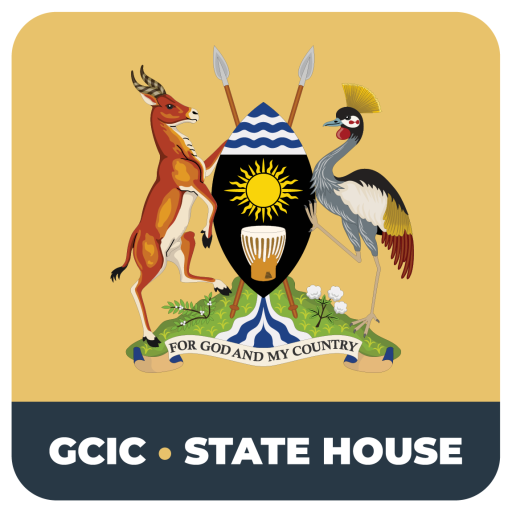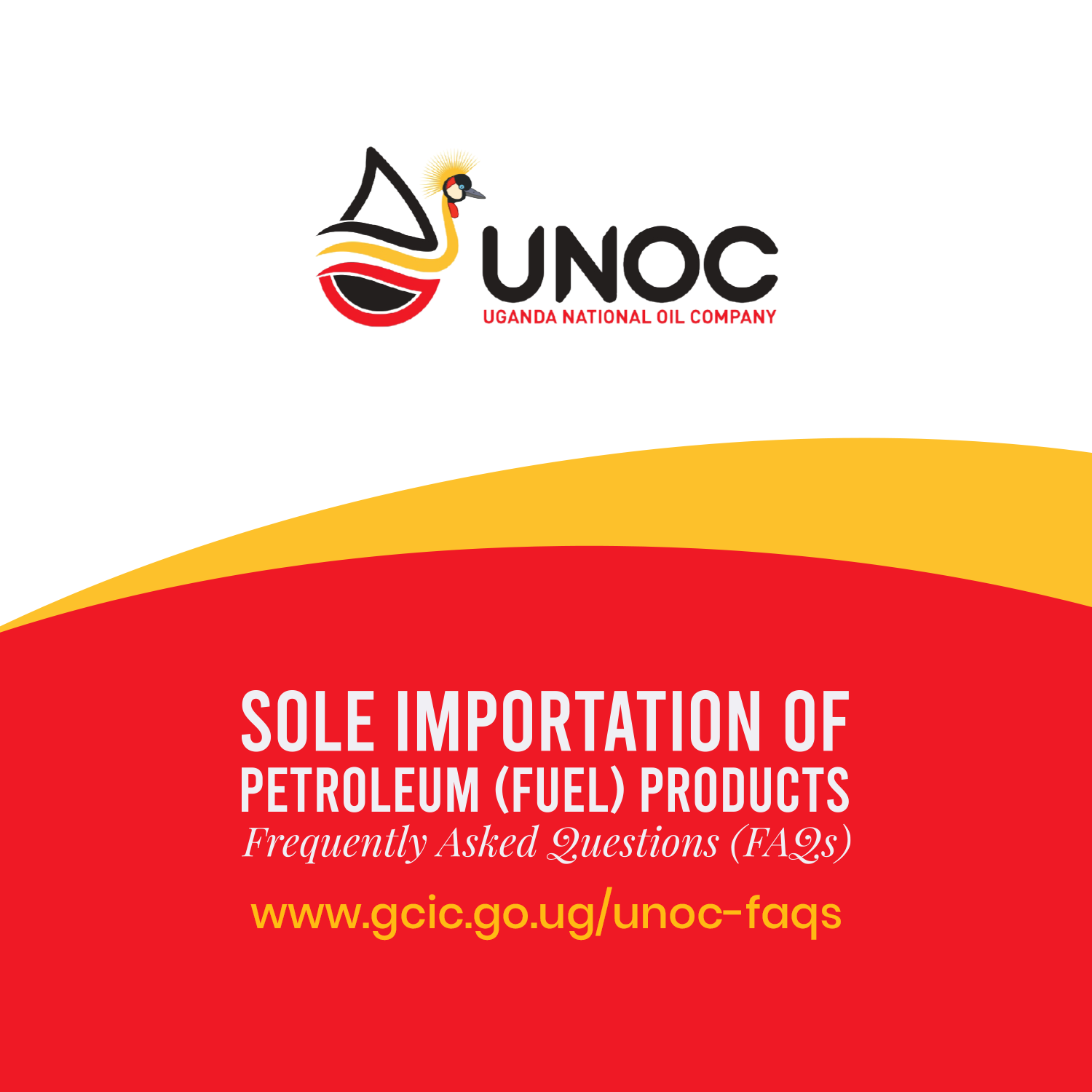The Pakwach Bridge, a vital artery connecting West Nile to the rest of Uganda, has long been plagued by ageing infrastructure and vegetation growth. However, under the visionary leadership of Uganda National Roads Authority (UNRA) Executive Director Allen Kagina, a comprehensive revitalisation project is underway.
Allen Kagina recently inspected the ongoing dredging activity on Pakwach Bridge, reaffirming the authority’s commitment to improving Uganda’s road network.
“We want to assess the progress of our projects and how they impact connectivity across the country,” she stated. The Pakwach Bridge and Karuma Bridge are crucial for connecting West Nile, with Karuma already under repair and expected to reopen by December.
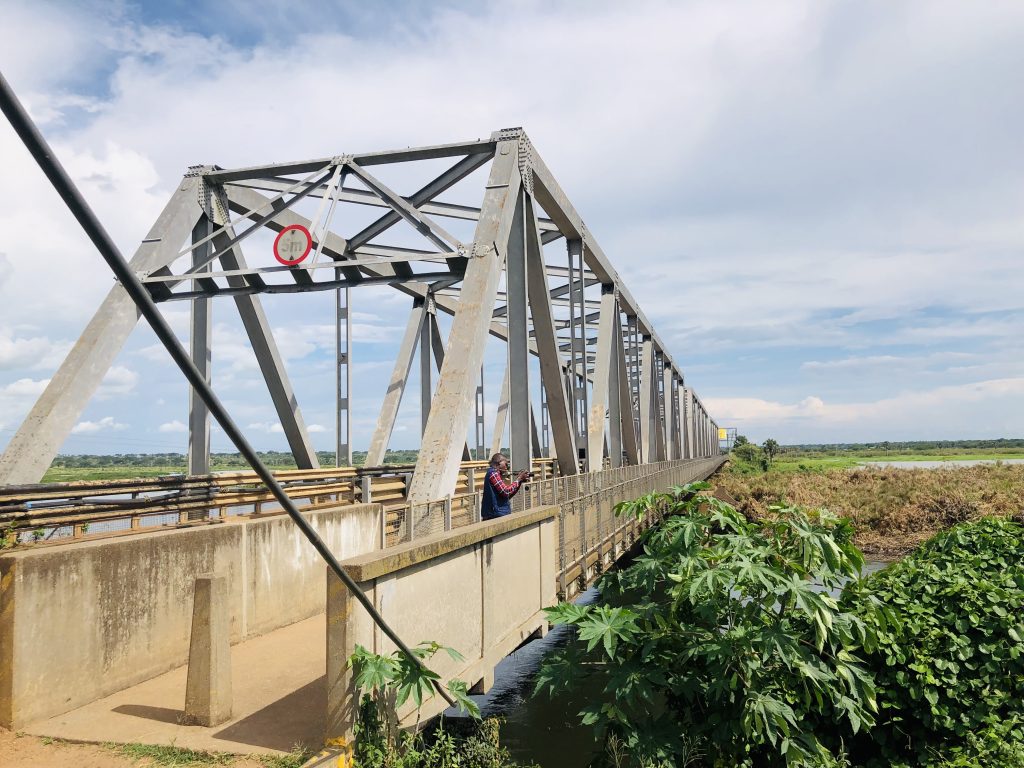
During her visit, Kagina discussed the construction of a temporary bridge to maintain traffic flow while planning and eventually building a new bridge, similar to the Karuma project. She highlighted the uniqueness of the current removal machine, emphasising the need for additional equipment to expedite the process.
Kagina also noted the challenges posed by vegetation growth, citing the bridge’s age since 1959.
“The immediate intervention is to construct a temporary bridge to maintain traffic flow, followed by a permanent bridge,” she explained.
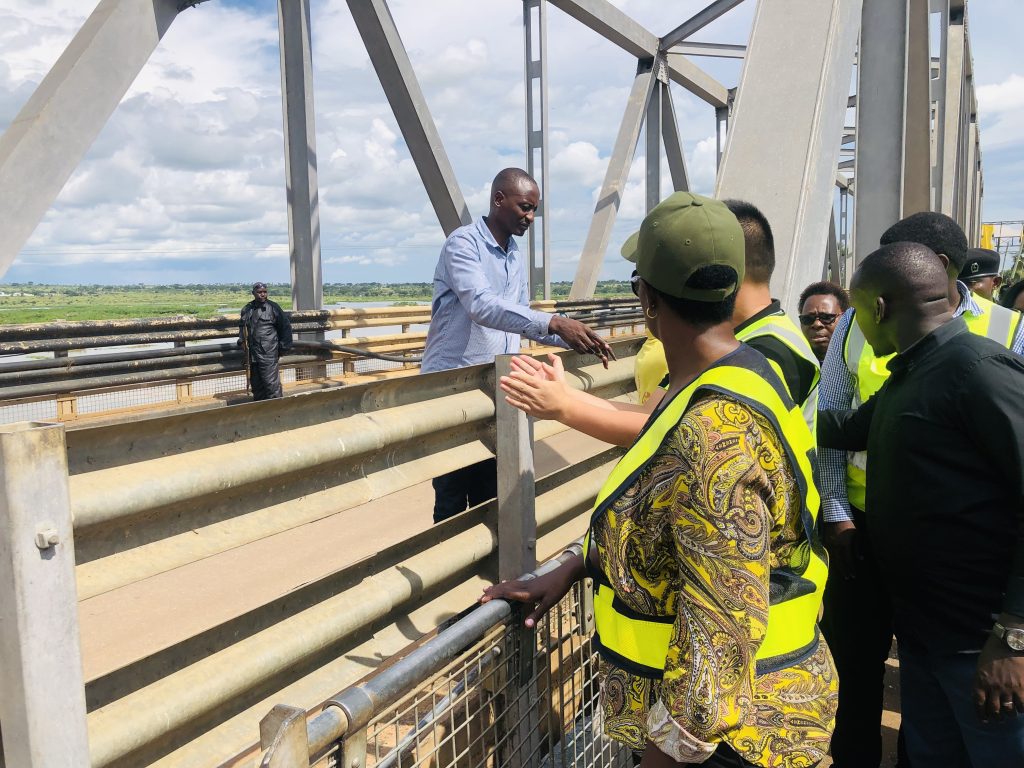
The project has faced challenges, including six weeks of slow progress and an anticipated six-month completion delay due to vegetation growth. To address these issues, UNRA is assembling a platform and excavator setup to support ongoing operations.
“The idea is to keep traffic moving… if you start limiting, what about the trade with South Sudan or Congo?” Kagina noted.
Key Takeaways:
• Temporary Bridge Construction: To ensure continuity of traffic flow
• Permanent Bridge Plans: To be built higher than current levels
• Challenges: vegetation growth and climatic changes causing displacement
• Support needed: additional machines to expedite the process
In addition to the Pakwach Bridge project, Kagina also visited the Wanseko Landing Site and the road connecting communities in Butiaba, which have been severely impacted by rising water levels. She pledged to upgrade the road, explore flood mitigation strategies, and support affected communities through infrastructure development.
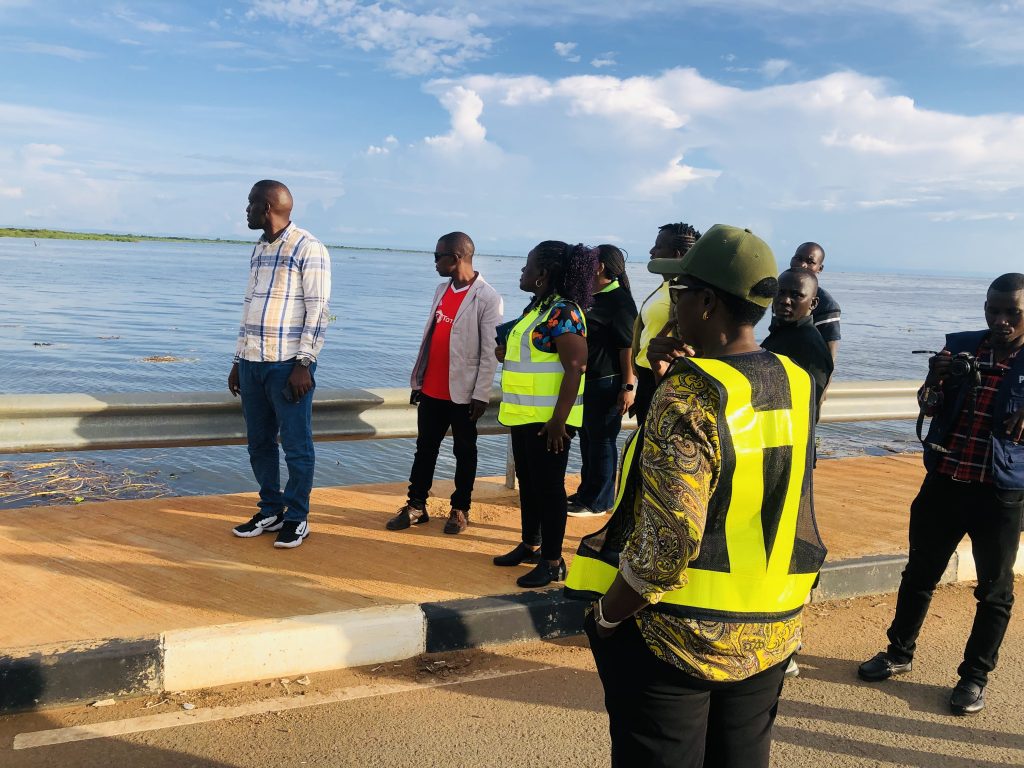
Kagina’s visit aimed to assess the damage caused by the flooding and identify measures to support affected communities. The rising water levels have disrupted livelihoods, damaged infrastructure, and posed significant challenges to local residents.
“We understand the challenges faced by communities affected by flooding, and we’re committed to finding lasting solutions.” ED Allen Kagina said.
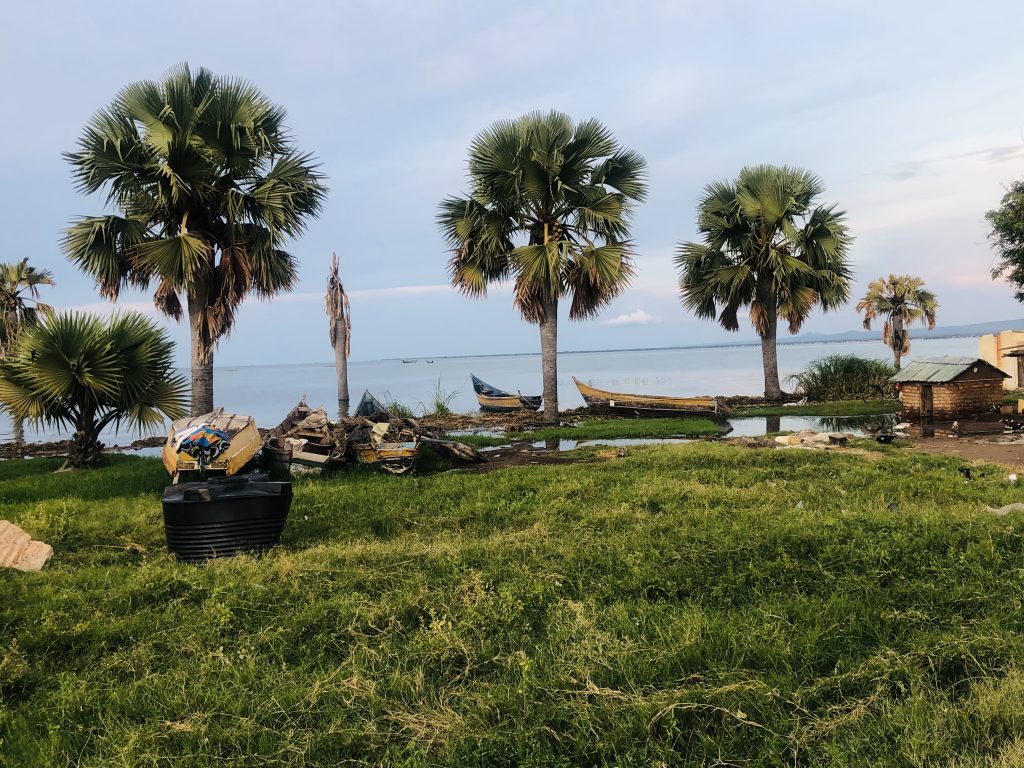
In a remarkable display of commitment to environmental sustainability, the Uganda National Roads Authority (UNRA) has successfully integrated wildlife conservation into its infrastructure development projects. UNRA Executive Director, Allen Kagina, recently showcased this innovative approach during her visit to the Western region.
The Masindi-Kisanja Park Junction road upgrade, spanning 104 kilometres, posed significant ecological concerns. The project’s location within a wildlife corridor raised worries about habitat disruption and animal migration.
UNRA addressed these concerns head-on, incorporating cutting-edge conservation measures. Innovative Solutions UNRA’s design includes:
1. Animal crossing facilities: Elevated bridges and tunnels enable safe passage for elephants, reptiles, and other wildlife.
2. Forest canopy regrowth: Careful planning allows the natural forest canopy to reclaim its territory, facilitating primate movement.
3. Conservation safeguards: UNRA collaborated with conservation stakeholders to ensure the project’s environmental impact was minimised.
Kagina emphasised UNRA’s dedication to sustainable infrastructure: “We prioritise environmental responsibility, ensuring development and conservation go hand in hand. Our projects must benefit both people and the planet.”
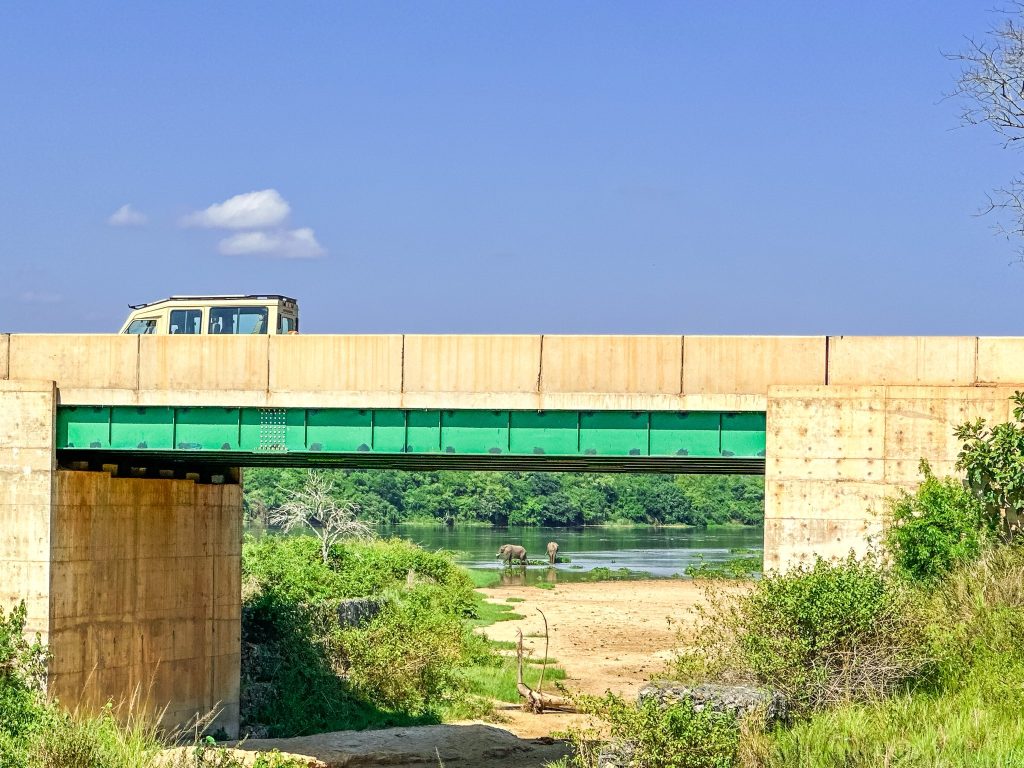
Regional Benefits
The upgraded road will:
1. Enhance connectivity: Improve trade and economic growth between Masindi, Hoima, and Fort Portal.
2. Boost tourism: Increase access to nearby national parks and wildlife reserves.
3. Support local communities: Create jobs and stimulate economic activity.
About UNRA
The Uganda National Roads Authority (UNRA) is responsible for the development and maintenance of Uganda’s national road network.


